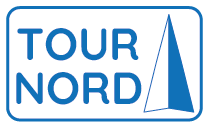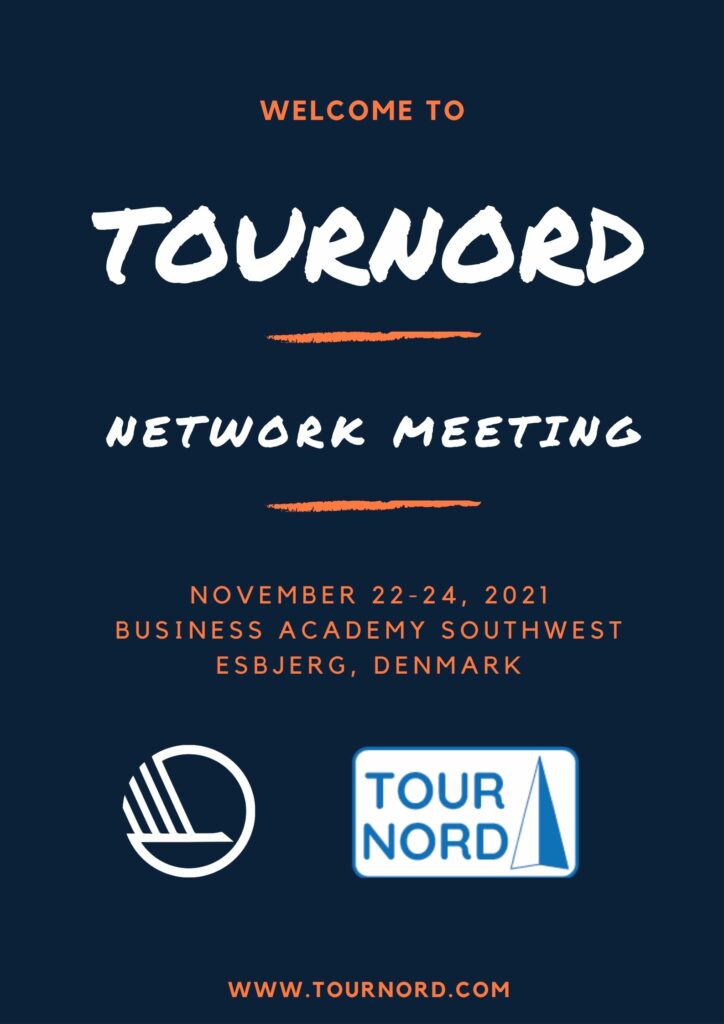
What an exciting week this has been! After so many delays and postponements due to COVID-19, TourNord was finally able to have its first ever network meeting!
From the 22 – 24 of November 2021, Business Academy SouthWest hosted the network meeting in Esbjerg, Denmark, where participants from Western Norway University of Applied Sciences, Linnaeus University, University of Turku, University of Greenland and Dania Academy attended.
Serving as a forum for exchanging best practices and experiences for education and knowledge development within Nordic Tourism, the central themes of the network meeting were:
- Preparing students and educators in tourism with digital skills & competences
- Developing Sustainable Tourism Destinations
Day 1: A day of digital skills & competences
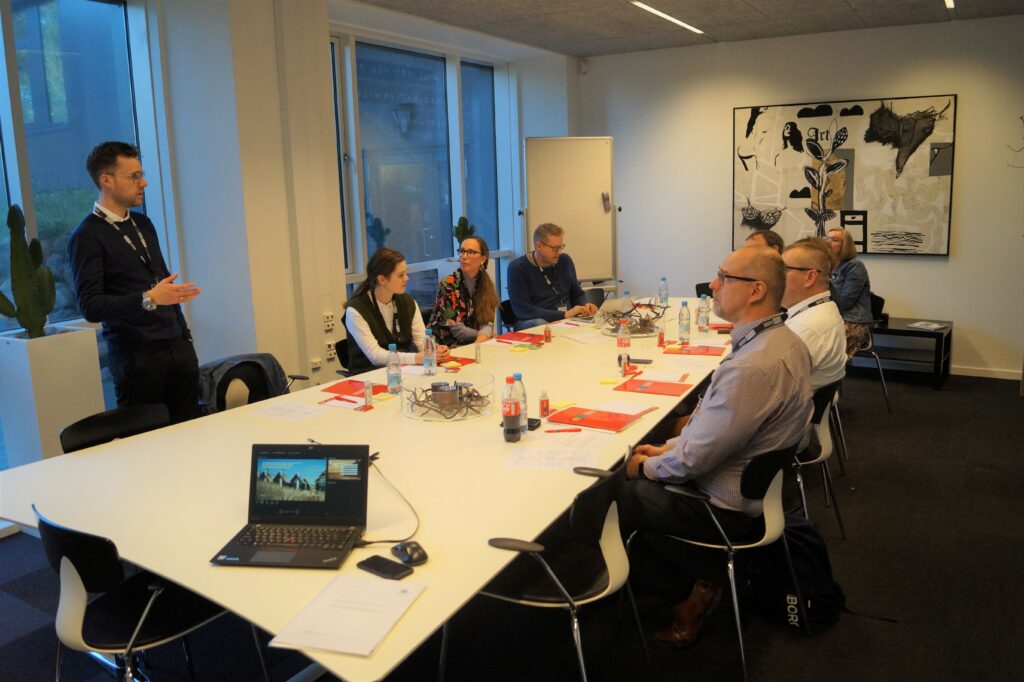
After a warm welcome, TourNord got straight down to business with a presentation from Alice Bank Danielsen from Danish Coastal and Nature Tourism, who gave us a fascinating insight on the schism that exists between educational institutions’ understanding of digital competences in the tourism sector versus the actual reality. She also rounded off by presenting the digital toolbox they have created, to serve as an inspiration and guidance tool for tourism actors in Denmark. This was followed afterwards by a great debate on how we (as educational institutions) can better gear our staff and students to be more prepared for the digital world that is tantamount to succes in modern tourism.
After a quick break, we then went into a brainstorming session on how we could generate a concrete course which would help contribute to the digital competences skill gap in the Nordic tourism sector. Splitting into two groups, we came up with two very different (but equally inspiring) ideas!
One group laid a framework for a completely digital course (geared at both higher education students and the life-long learning adult education sector), which could be completed through a series of achievements and tasks (microcredentials). The course would stand on ‘three digital legs’, focusing on strategy, marketing and operations. The course would be case-based, in order to be context specific for the local partner institutions’ needs and demands.
The second group loved the idea of a digital course, but also saw the need and desire after long COVID-19 lockdowns for students to travel and meet – creating a short and intensive physical course where partner institutions’ students where required to travel to 2-3 partner schools. Students would receive both lecturing and be able to work on local cases with regards to using digital tools to optimize business performances of local tourism actors. Each partner institution has different skills (close ties to practitioners, workshop and creative thinking facilitation, digital skill application, etc.) and would be fine-tuned accordingly.
We plan to further work on these two ideas at our next network meeting!
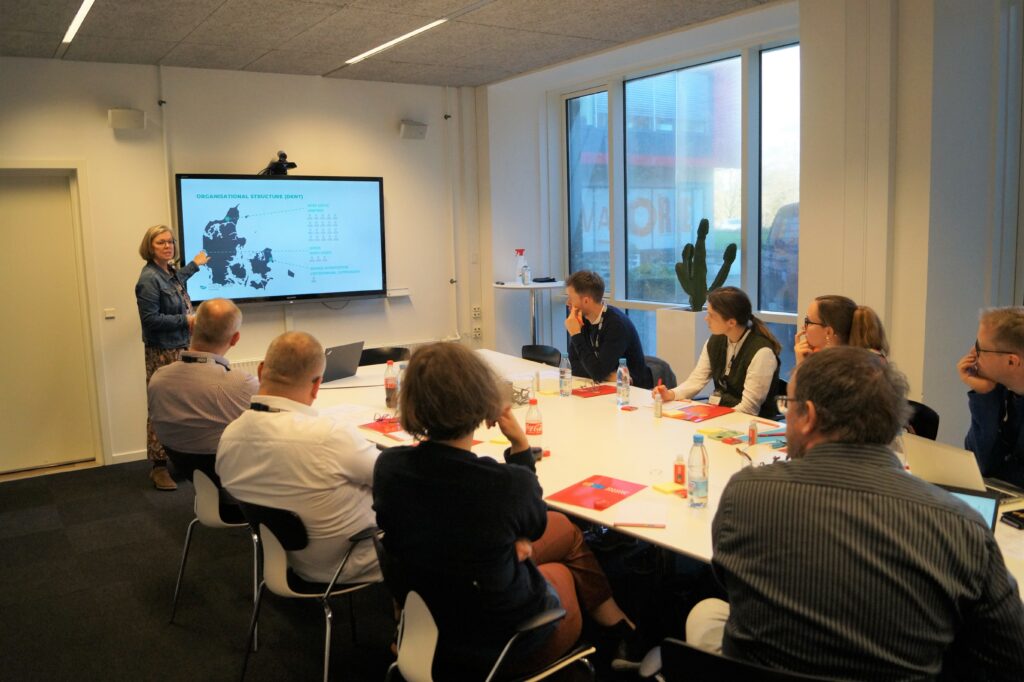
Day 2: Excursion and Sustainable Tourism Development
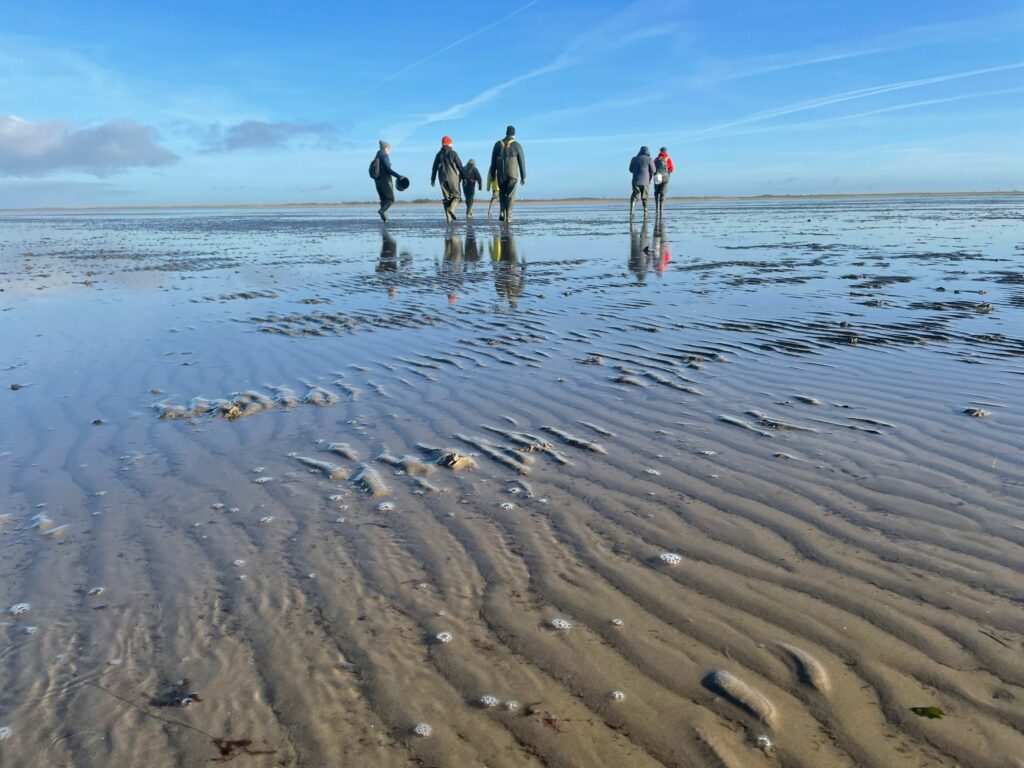
Esbjerg is known for being windy (and the odd spot of rain as well!), yet we could not have asked for better weather in late November for our excursion to the Wadden Sea National Park (a UNESCO World Heritage Site). The morning started off with a visit to the Wadden Sea Center, where we were introduced to the the park, the relationship between nature and tourism, and how the Wadden Sea was unique in its biodiversity.
We then went on an oyster safari in the Wadden Sea, traversing ca. 2.5km into the ocean during low-tide (our guide informed us that the difference in water level between low and high tide was 1m70!).
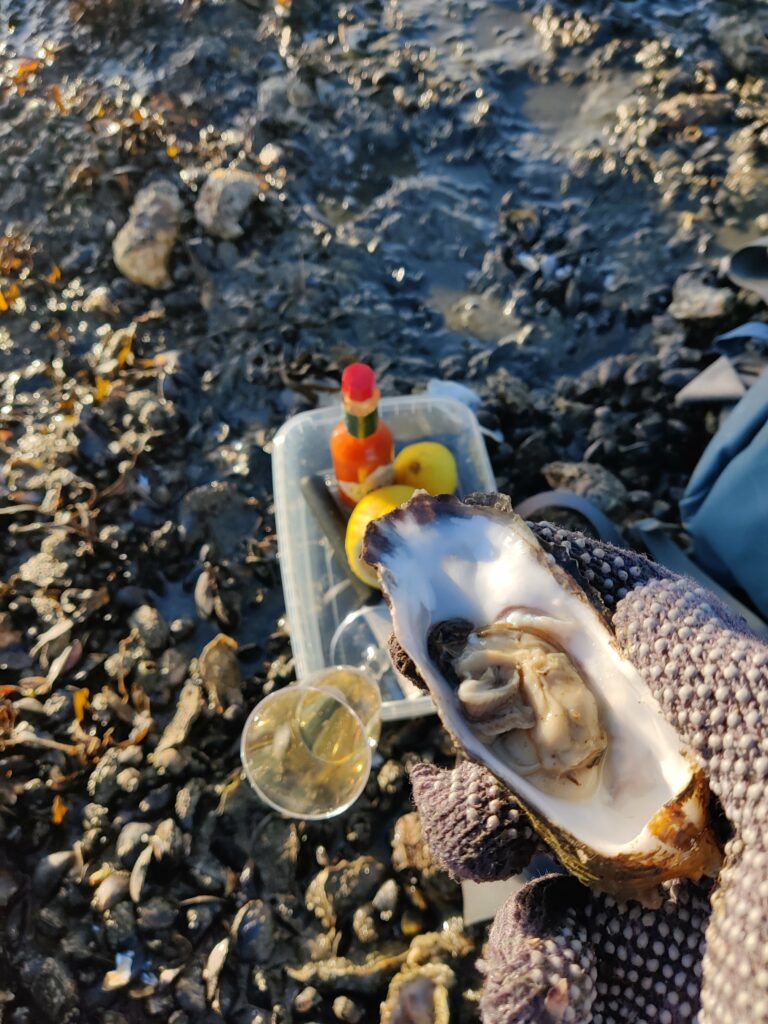
Once we reached an oyster reef, our guide showed us how to chuck and eat oysters, all the while informing us about the types of tourists these tours normally get, interesting information about the wildlife (including snails that surf the waves, and white-tailed eagles) and the importance of knowing how to navigate the landscape.
Safely back at the Wadden Sea Center, the TourNord group then held a brainstorming session on future development projects – inspired by the Wadden Sea excursion, sustainable tourism development was the focal point. After a great discussion (where many ideas where generated), we decided that coastal tourism in the Nordics is indeed incredibly unique in the world of tourism (and how to develop it sustainably). We will therefore continue working on developing a project revolving around Nordic Coastal Tourism at our next network meeting in Finland!
Our day ended by passing by Ribe, Denmark’s oldest town, and a well-known tourist destination.

Day 3: Sustainable Tourism Development: Academic discussions and practical realities
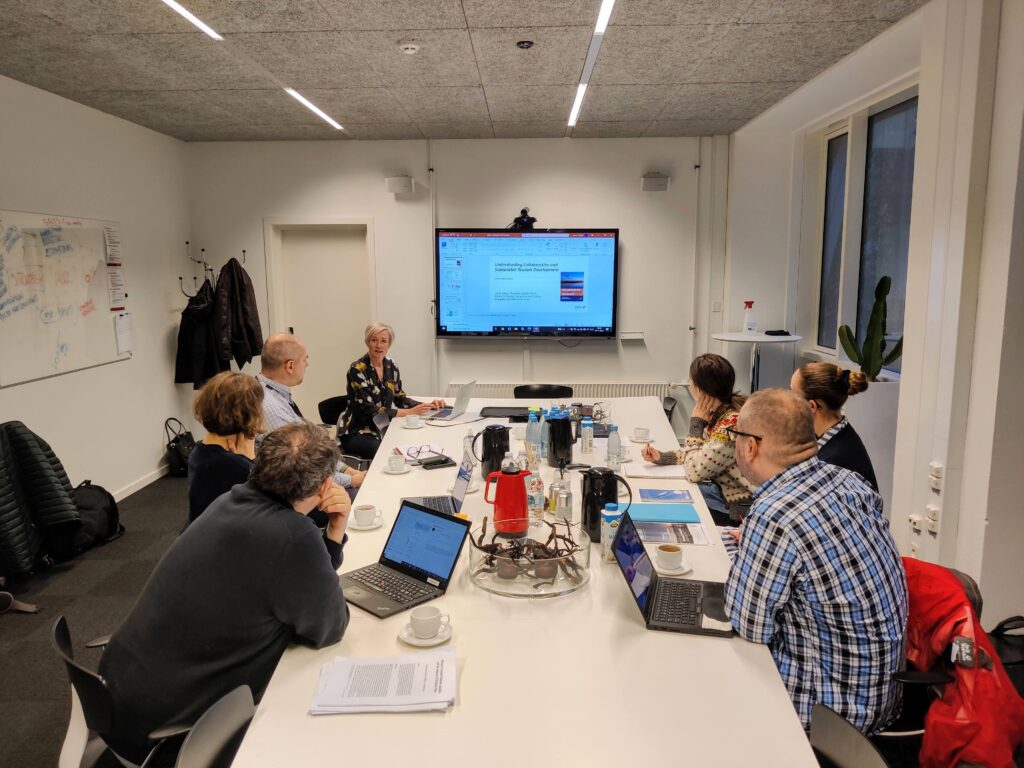
The final day of the network meeting had a very special guest – Professor of Tourism Janne Liburd from the University of Southern Denmark, and Chairman of the Board for the Wadden Sea National Park. Janne invited us to a scintillating group discussion on understanding collaborative and sustainable tourism development. We were inspired by Janne Liburd’s transformative approach to sustainable tourism development, and we collectively tried to see how we could introduce this paradigm shift of moving tourism as growth-based industry selling a ‘product’, to instead how tourism can be a generator of wellbeing (moving across domains of cultural, economic, and ecological wellbeing). Specifically, how tourism can move from an industry that depletes an area of its resources, to instead to become a holistic part of its habitat – something the UN development goals would definitely adhere to!
